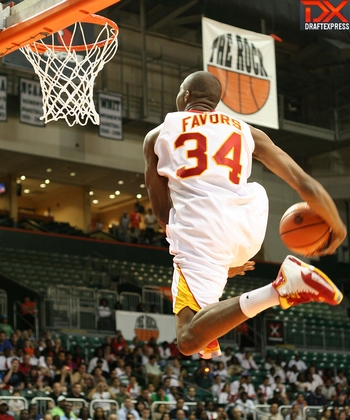http://www.82games.com/bestdraftingteams.htmNot a perfect system but one of the few analyses that exist in the first place. Jazz are top 1/3 in the league, and that's rewarding teams that acquired picks via trade. Teams that have higher picks and used them to get stars also are typically ranked higher; the system used adjusts a little for that based on "expectation" but not wholly.
Now, take into account that Utah had more success from '89-'08 than SIX of the teams ahead of them on that list.
http://aol.sportingnews.com/nba/story/2012-06-27/nba-draft-2012-new-analysis-breakdown-best-worst-picksTouches on how great of a pick Millsap really was. We all know that yet still take it for granted. Then there's Mo Williams, one of only 2 second-round picks to reach the all-star game in the last decade (the fact that it was w/ the Cavs is a moot point, it doesn't detract from the value of the original pick).
Not all of it is statistical, maybe a made a mistake in using that term, but it's logical. There are two factors that converge to make it very difficult for Utah to remain competitive year after year:
1. We're a small, unnatractive market. We've never been able to easily buy players like the Lakers or Celtics.
2. We've been too good to get high draft picks
So we can't just get whoever in free agency, and we can't lean on the draft. Yet still, we make the playoffs most years, as well as the WCF's and even the finals twice. We do so not only by making the most out of our draft picks and making rare but smart moves in free agency, but by trying to acquire players that will actually stay here. Stockton and Malone. Hopefully Hayward and Favors.
Maybe I'm in the minority for thinking the Deron trade was absolutely genius and a gutsy move. There have definitely been mistakes...but most NBA teams have equal or worse blemishes on their records. It's mostly a crapshoot.
I don't know how much a factor Dennis Lindsey was in determining what the Spurs did, but you can't really call into question their methods or results, either.







